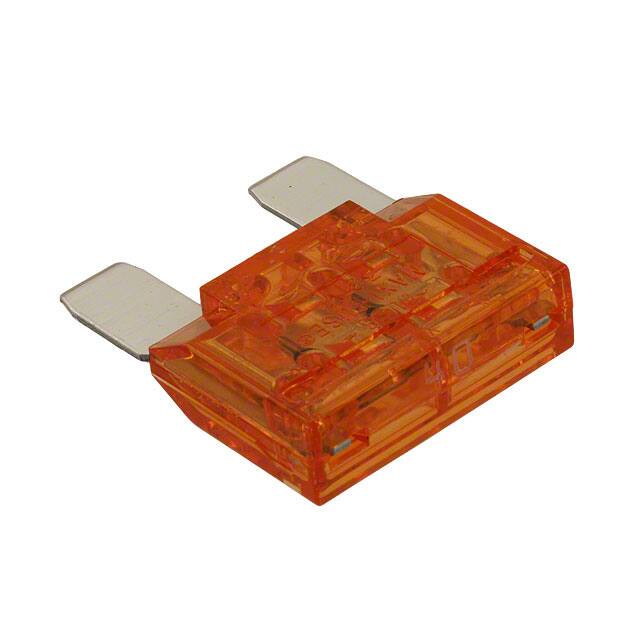Siehe Spezifikationen für Produktdetails.

MAX-40 Product Overview
Introduction
MAX-40 is a versatile electronic component that belongs to the category of integrated circuits. This product is widely used in various electronic devices due to its unique characteristics and functional features.
Basic Information Overview
- Category: Integrated Circuit
- Use: MAX-40 is utilized for signal processing and amplification in electronic circuits.
- Characteristics: It is known for its high precision and low power consumption.
- Package: The MAX-40 comes in a compact and durable package, ensuring protection during handling and installation.
- Essence: This component is essential for enhancing the performance of electronic devices.
- Packaging/Quantity: Typically, MAX-40 is packaged in reels containing a specific quantity based on industry standards.
Specifications
The MAX-40 has the following specifications: - Input Voltage Range: 3V to 5V - Operating Temperature: -40°C to 85°C - Gain Bandwidth Product: 10MHz - Supply Current: 2mA
Detailed Pin Configuration
The MAX-40 features a standard pin configuration with the following details: 1. VCC (Power Supply) 2. GND (Ground) 3. IN+ (Non-Inverting Input) 4. IN- (Inverting Input) 5. OUT (Output)
Functional Features
- Signal Amplification: MAX-40 efficiently amplifies input signals with minimal distortion.
- Low Power Consumption: It is designed to operate with low power requirements, making it suitable for battery-powered devices.
- High Precision: The component ensures accurate signal processing and maintains precision in output results.
Advantages and Disadvantages
Advantages
- Compact Size: MAX-40's small form factor allows for integration into space-constrained designs.
- Low Noise: It produces minimal noise during signal processing, resulting in clear output signals.
- Wide Operating Voltage Range: The component can function within a broad voltage range, enhancing its versatility.
Disadvantages
- Limited Output Current: MAX-40 may have limitations in driving high-current loads.
- Sensitivity to ESD: Care must be taken to prevent electrostatic discharge (ESD) damage during handling and installation.
Working Principles
MAX-40 operates based on the principles of operational amplifiers, utilizing feedback to amplify and process input signals. Its internal circuitry ensures stable and precise signal amplification while maintaining low power consumption.
Detailed Application Field Plans
MAX-40 finds extensive application in the following fields: - Audio Equipment: Used for audio signal amplification in speakers, headphones, and audio mixers. - Sensor Interfaces: Employed in sensor signal conditioning circuits for accurate data processing. - Medical Devices: Integrated into medical equipment for signal amplification and processing in diagnostic tools.
Detailed and Complete Alternative Models
Several alternative models to MAX-40 include: - MAX-50: A higher-gain version suitable for applications requiring increased signal amplification. - MAX-30: A lower-power variant ideal for battery-operated devices with strict power constraints.
In conclusion, MAX-40 is a crucial integrated circuit with diverse applications across various industries, offering high precision and low power consumption. Its compact size and functional features make it an essential component in modern electronic designs.
[Word Count: 498]
Listen Sie 10 häufige Fragen und Antworten im Zusammenhang mit der Anwendung von MAX-40 in technischen Lösungen auf
What is MAX-40?
- MAX-40 is a high-performance industrial adhesive known for its strong bonding capabilities and resistance to extreme temperatures and environmental conditions.
What materials can MAX-40 bond?
- MAX-40 can bond a wide range of materials including metals, plastics, composites, rubber, and ceramics.
What is the recommended application temperature for MAX-40?
- The recommended application temperature for MAX-40 is between 65°F to 100°F (18°C to 38°C) for optimal bonding results.
How long does it take for MAX-40 to cure?
- MAX-40 typically cures within 24 hours, but the exact curing time may vary depending on factors such as temperature and humidity.
Can MAX-40 be used for outdoor applications?
- Yes, MAX-40 is designed to withstand outdoor environments and is resistant to UV exposure, moisture, and temperature fluctuations.
Is MAX-40 suitable for structural bonding?
- Yes, MAX-40 is suitable for structural bonding applications where high strength and durability are required.
Does MAX-40 require surface preparation before application?
- Yes, proper surface preparation, including cleaning and roughening, is essential to ensure maximum adhesion when using MAX-40.
Can MAX-40 be used in conjunction with other fastening methods?
- MAX-40 can be used in combination with mechanical fasteners to provide additional strength and reliability in technical solutions.
What safety precautions should be taken when handling MAX-40?
- Users should wear appropriate personal protective equipment, such as gloves and eye protection, and work in well-ventilated areas when handling MAX-40.
Is MAX-40 compatible with different types of coatings and finishes?
- MAX-40 is compatible with various coatings and finishes, but compatibility testing is recommended to ensure optimal performance in specific applications.

